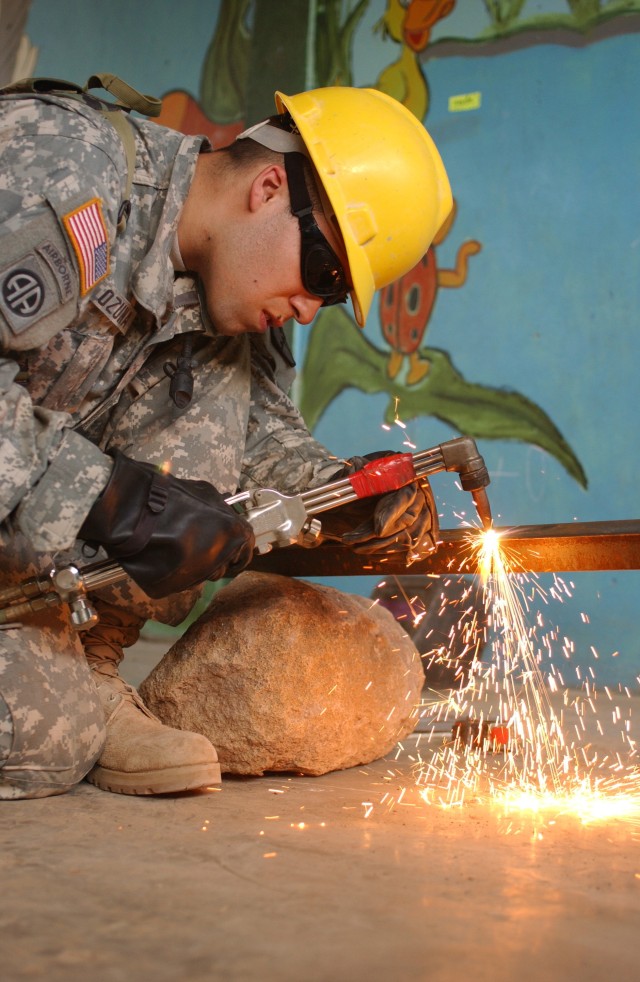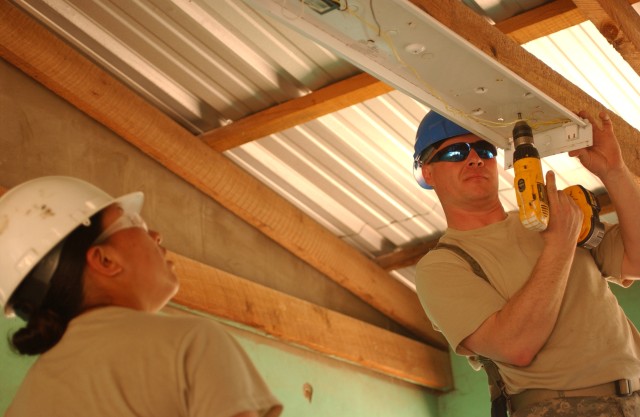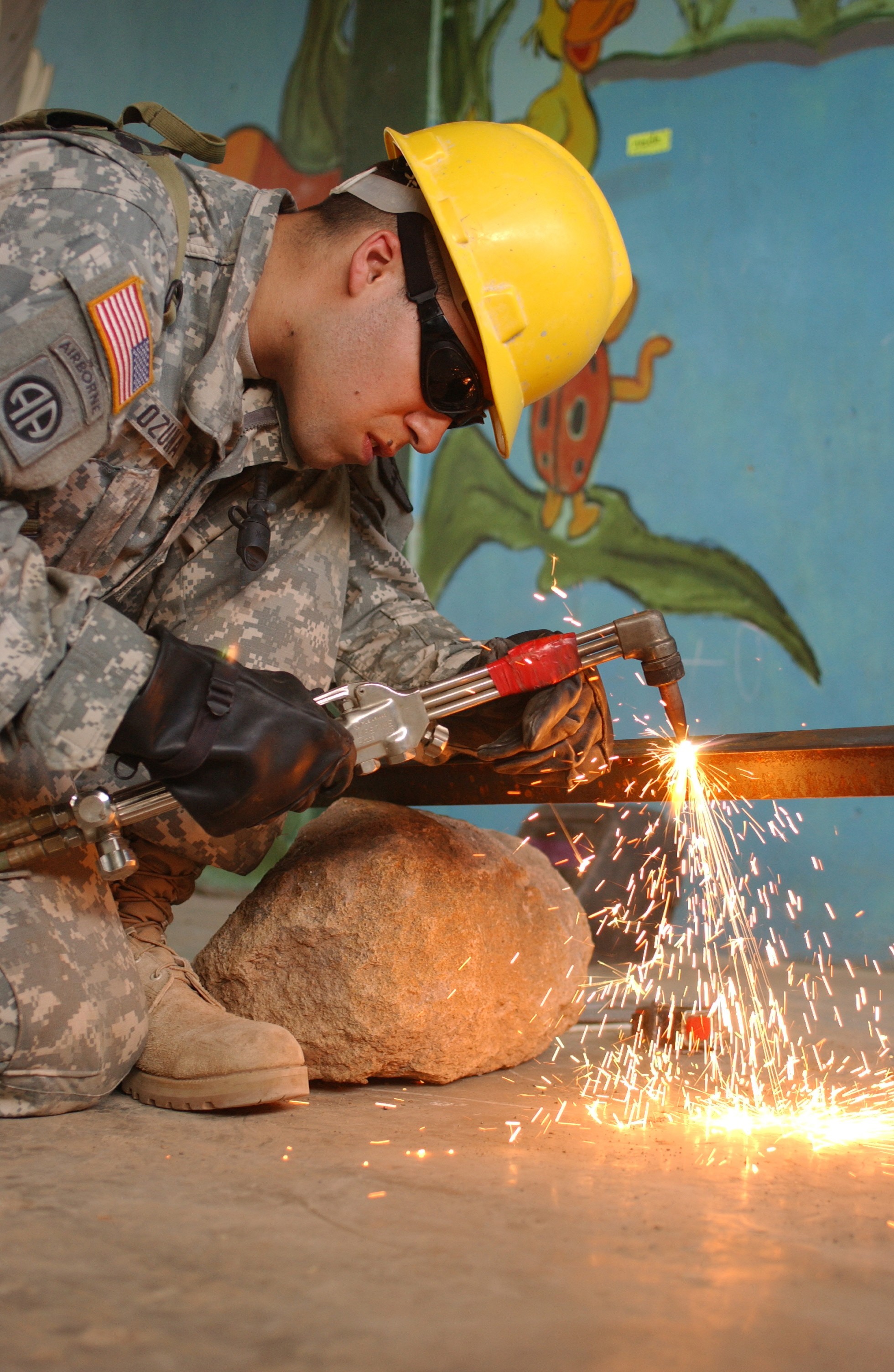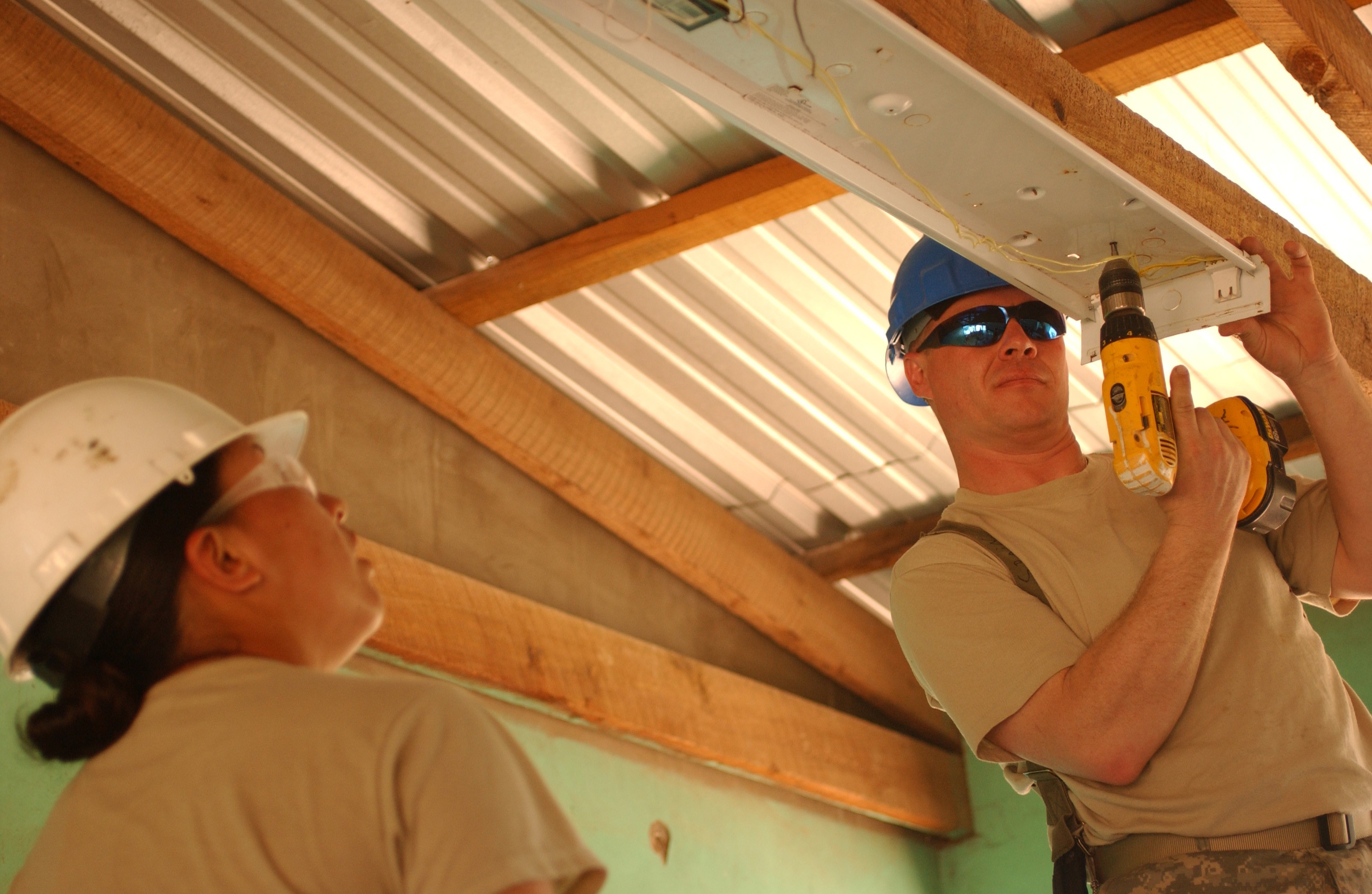Last year the Army Reserve celebrated its 100th anniversary. Reserve Chief Lt. Gen. Jack C. Stultz and INOVA Health Systems Chief Executive Officer Knox Singleton signed a first-ever agreement that allowed the Army Reserve to recruit and train medical specialists not only for the Reserves, but for guaranteed employment with the largest health care-provider in the Washington area.
Coined the Employer Partnership Initiative, Stultz came up with the idea as a way to help fulfill Reserve unit needs and also employment needs of the civilian sector, in such fields as medical, transportation and law enforcement.
In the case of INOVA, the agreement provides new citizen-warriors with opportunities for employment at one of six health care centers after Soldiers have learned military occupational skills in critical clinical support areas such as radiology, respiratory therapy and surgical occupations.
A year after that first initiative was signed, the EPI program has mushroomed to include more than 153 businesses, as well as local and state governments who are looking to fill their ranks with Reserve Soldiers.
"We want you to join the Army Reserve, but we also want to get you a civilian skill set at the same time, so what I want is a successfully employed Army Reserve Soldier," said Stultz. "What I don't need is an unemployed Reserve Soldier, because what he makes on his weekend drill pay is not going to pay the rent."
When the Army Reserve first looked into the viability of the partnership, leadership looked at where the biggest opportunities and needs were in the civilian sector and matched them with the Reserve's needs. The civilian opportunities that popped right up were law enforcement, medical technology and long-haul trucking.
"The American Trucking Association told us they had an aging workforce that they were going to have to replace and that they already had a lot of shortages in finding qualified drivers, so we thought we could help where we share the same skill sets," Stultz said. "We already have those skills in our force; we have transportation units, medical units and military police units."
The general pointed out that Conway Freight, a partner in Ann Arbor, Mich., visited a Reserve unit several months ago looking for drivers and hired six Soldiers on the spot to fill some immediate needs.
"So, from the standpoint of the Soldiers, they're very excited and happy and saying it's because the Army Reserve just helped them get better jobs," Stultz said. "And, Conway, they're very excited because they're saying, 'Hey, the Army Reserve just helped us fill some needs,' so this is a win-win situation for both of us."
Shortly after INOVA Health System signed on, the word was out and other organizations and businesses started calling, waving their hands and wondering if they too could participate, Stultz said. J.B. Hunt and Snyder Trucking have signed on, as have IBM, GE, Sears, ExxonMobil, Wal-Mart, Home Depot and the Washington Metro Police.
"When I've talked to some of these CEOs and vice presidents they'll tell you they employ a lot of veterans and they employ a lot of Reserve Soldiers, Sailors, Airmen and Marines because of their integrity and work ethic," Stultz said. "Veterans and Reservists understand teamwork and leadership; they understand followership; they show up on time and they take responsibility."
Stultz relayed a story about a conversation he had with the vice president of Home Depot several years ago when he was looking at the feasibility of the EPI. The VP told him that as much as he thought of himself as a patriot, the decision to hire Soldiers was strictly a business decision.
"He told me Home Depot had done the metrics, measured absenteeism, measured productivity and measured development," Stultz said. "He said he could take one of our junior officers and put him in a store-management-development program, and he can get him to the same level in 24 months that takes everyone else 59 months, because he already understands teamwork, responsibility, how to lead. That's something we have to teach to the others, but you've already taught that to the Soldiers."
In November 2008, Wal-Mart joined with the Army Reserve-its director of military recruiting was a former deputy chief of the Army Reserve. Unlike INOVA, which recruits specifically for medical technicians and registered nurses and is solely in the northern Virginia area, Wal-Mart is nationwide with plans to grow its stores overseas.
"Wal-Mart has everything from a store-manager program to warehousing and distribution to truck driving to personnel and finance-I mean, it's a huge corporation with needs across the company and country, so if I've got a Soldier who wants to stay in the local community where a Wal-Mart is or if I've got a Soldier who is willing to relocate to where we have a Reserve unit and a Wal-Mart, we can place him there."
Stultz said when the Army Reserve signed on with 333,000-employee strong General Electric in mid-January it opened the door to recruitment of Reservists in Europe and Korea. Theoretically, he can now recruit a Soldier to fill a billet with the 7th Civil Support Command in Germany and work with GE as a civilian there.
Another positive of the EPI is the effect it will have on recruiting. Stultz said in the old days, a prospective Reservist might walk into the recruiter's office in a given area and want to be a radiology technician. The recruiter might not have any billets available locally, but now the recruiter can pull up a unit in the Washington area, for example, that does need a radiology technician. Because the Reserve has an EPI with INOVA, the recruiter can offer possible civilian employment in the same career field at INOVA.
"The gratifying thing about this whole enterprise has been to see the response from America's industry," Stultz said. "We went looking for a few to join in the EPI, but now we have a wave of 150-plus companies across the country that signed and another 200 waiting or who have expressed some interest, because these businesses recognize the talent and quality you get with a Soldier."
For more information on the EPI, visit: http://www.armyreserve.army.mil/ARWEB/NEWS/WORD/Employer_Partnership.htm




Social Sharing